VANCOMYCIN - INJECTION
PHONETIC PRONUNCIATION: (VAN-koe-MYE-sin)
COMMON BRAND NAME(S): Vancocin
GENERIC NAME(S): vancomycin HCl
Uses
USES: Vancomycin is used to treat serious bacterial infections. It is an antibiotic that works by stopping the growth of bacteria. This medication is usually given by injection into a vein. However, the form in vials may also be given by mouth to treat a certain intestinal condition (colitis) that may rarely happen after treatment with antibiotics. This condition causes diarrhea and stomach/abdominal discomfort or pain. When vancomycin is taken by mouth, it stays in the intestines to stop the growth of bacteria that cause these symptoms. This antibiotic treats only bacterial infections. It will not work for viral infections (such as common cold, flu). Using any antibiotic when it is not needed can cause it to not work for future infections.
How to use VANCOMYCIN - INJECTION
HOW TO USE: This medication is usually given by injection into a vein as directed by your doctor, usually every 6 to 12 hours. Each dose should be injected slowly over at least 1 hour. The dosage and length of treatment are based on your medical condition, weight, and response to treatment. If you are using this medication at home, learn all preparation and usage instructions from your health care professional. Before using, check this product visually for particles or discoloration. If either is present, do not use the liquid. Learn how to store and discard medical supplies safely. If you are using the frozen mixed liquid, thaw the medication at room temperature or in the refrigerator before using. Do not thaw by putting in a water bath or microwave. After thawing, shake well and squeeze the container to check for leaks. Discard the solution if the container leaks. Do not freeze it again after thawing. If you are taking this medication by mouth, follow your doctor's directions for taking the mixed liquid. This medication must first be mixed with water if it is taken by mouth. Ask your doctor or pharmacist if you have any questions. For the best effect, use this antibiotic at evenly spaced times. To help you remember, use this medication at the same times every day. Continue to use this medication until the full prescribed amount is finished, even if symptoms disappear after a few days. Stopping the medication too early may result in a return of the infection. Tell your doctor if your condition lasts or gets worse.
Side Effects
Precautions
Interactions
Overdose
Images
Reviews
Faq for VANCOMYCIN - INJECTION
Vancomycin injection is typically used to treat severe bacterial infections, including methicillin-resistant Staphylococcus aureus (MRSA) and Clostridium difficile-associated diarrhea.
Vancomycin works by inhibiting the growth and spread of bacteria. It does this by interfering with the production of bacterial cell walls, ultimately causing them to weaken and break down.
Vancomycin injection is usually administered intravenously (IV) or sometimes as an infusion over a period of time. It should only be given by healthcare professionals.
Common side effects of vancomycin injection may include redness or pain at the injection site, nausea, vomiting, kidney problems, and rash. It is important to report any severe or unusual side effects to a healthcare provider.
Vancomycin injection is generally considered safe to use during pregnancy and breastfeeding. However, it is always recommended to consult with a healthcare provider before using any medication during these periods.
Vancomycin is primarily effective against certain types of gram-positive bacteria. It may not be effective against some gram-negative bacteria or viruses. It is essential to consult with a healthcare provider to determine the appropriate treatment options.
The effectiveness of vancomycin injection varies depending on the specific infection being treated. In some cases, improvements may be noticed within a few days, while in others, treatment may be required for a longer duration.
Yes, vancomycin injection can potentially interact with other medications, including aminoglycosides, nondepolarizing muscle relaxants, and certain anticoagulants. It is important to inform a healthcare provider about all medications being taken to prevent any harmful interactions.
Yes, vancomycin injection can cause serious allergic reactions, although this is rare. Symptoms may include difficulty breathing, swelling of the face or throat, and severe rash. If any of these symptoms occur, immediate medical attention should be sought.
Disclaimer
IMPORTANT: HOW TO USE THIS INFORMATION: This is a summary and does NOT have all possible information about this product. This information does not assure that this product is safe, effective, or appropriate for you. This information is not individual medical advice and does not substitute for the advice of your health care professional. Always ask your health care professional for complete information about this product and your specific health needs.
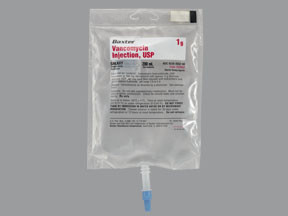
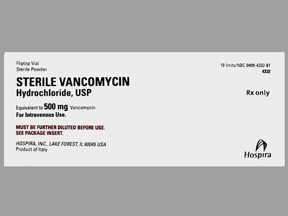
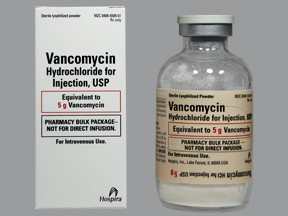
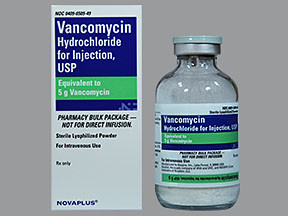
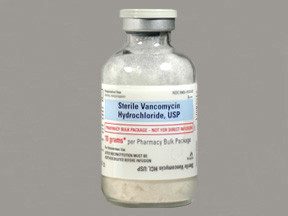
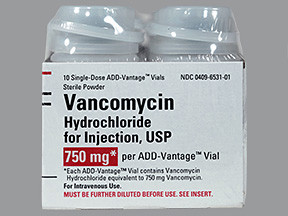
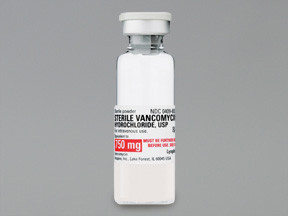
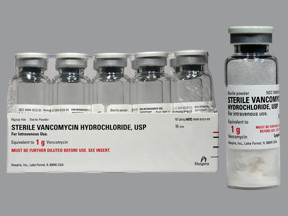
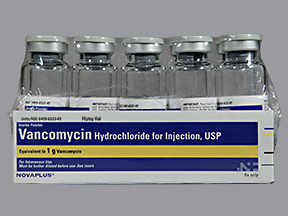
No Reviews Yet